
Health
18 Feb 2026
Brainwaves of mothers and children synchronize when playing together – even in an acquired language
Neural synchrony between mothers and children doesn’t require native language proficiency

Health
18 Feb 2026
Neural synchrony between mothers and children doesn’t require native language proficiency

Life sciences
17 Feb 2026
A bacterial strain thriving in icy environments could sharpen antibiotic resistance crisis – or help solve it, new research shows
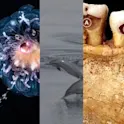
Life sciences
13 Feb 2026
At Frontiers, we bring some of the world’s best research to a global audience. But with tens of thousands of articles published each year, it’s impossible to see all that research in the same way scientists do. Here are some images that showcase some of the newest findings published in the last month.

Social science
12 Feb 2026
Study of inequality in medieval graves shows that stigmatized illnesses didn’t bar people from socially prestigious burials
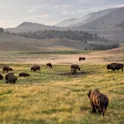
Environment
10 Feb 2026
As drought and rising organizational demands for larger hunting operations hit at the same time, ancient hunters adapted to severe droughts by shifting the way and where they hunted, study shows

Health
09 Feb 2026
A key technique of cognitive behavioral therapy for panic disorder is interoceptive exposure, where patients learn to tolerate the physical effects of panic attacks through repeated simulated exposure. Now, scientists have shown in a randomized controlled trial that brief intermittent intensive exercise is more effective at reducing the severity of panic disorder than relaxation therapy.

Life sciences
03 Feb 2026
Cats process proteins so efficiently that isotope signatures in their hair resemble plant-eaters, indicating that isotopic values alone may be insufficient to determine what animals ate

Health
29 Jan 2026
Guest editorial by Ric Treble and Caroline Copeland, authors of a new Frontiers in Pharmacology article that examined the impact of national and international legislation on the emergence of new psychoactive substances in England, Wales and Northern Ireland.
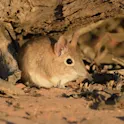
Life sciences
27 Jan 2026
New footprint identification technology can identify ecosystem-critical species which were once only distinguishable by DNA.
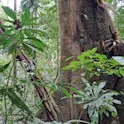
Life sciences
26 Jan 2026
Current regulations in the Peruvian Amazon prioritize large trees for timber harvesting. But a new study has now shown that most carbon is stored in trees with a diameter at breast height of at least 41cm, depending on species. The authors concluded that a review of forest policy is essential to protect these trees if progress towards net-zero emissions is to be made.

Life sciences
23 Jan 2026
28 years of data show that three whale species in the Gulf of St Lawrence may be dividing resources to survive in an ecosystem that’s changing under a warming climate and increased human encroachment

Life sciences
21 Jan 2026
Groundbreaking DNA analysis of Alaskan beluga whales shows both males and females have many different mates.

Health
19 Jan 2026
Researchers found exceptionally high levels of trauma among survivors of a notorious atrocity: the 1988 chemical attack on Halabja in Kurdistan.
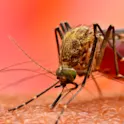
Life sciences
15 Jan 2026
Scientists found that some mosquitoes really are targeting humans more than other food sources, but it could be a matter of convenience as biodiversity dwindles and other food sources are displaced

Health
18 Dec 2025
A major review in Frontiers in Science highlights how tackling unsustainable food systems—reflected by our changing food environment—is urgent for both health and climate.
Get the latest research updates, subscribe to our newsletter